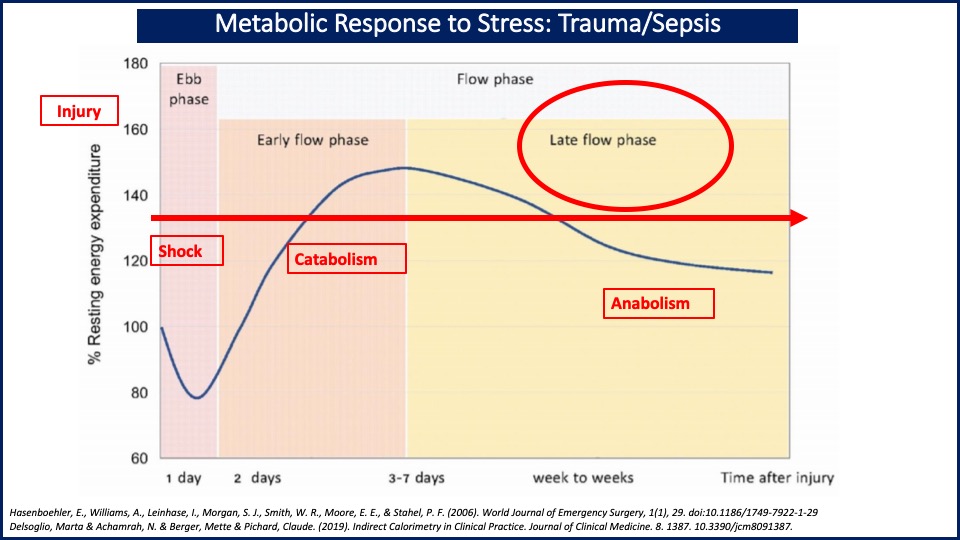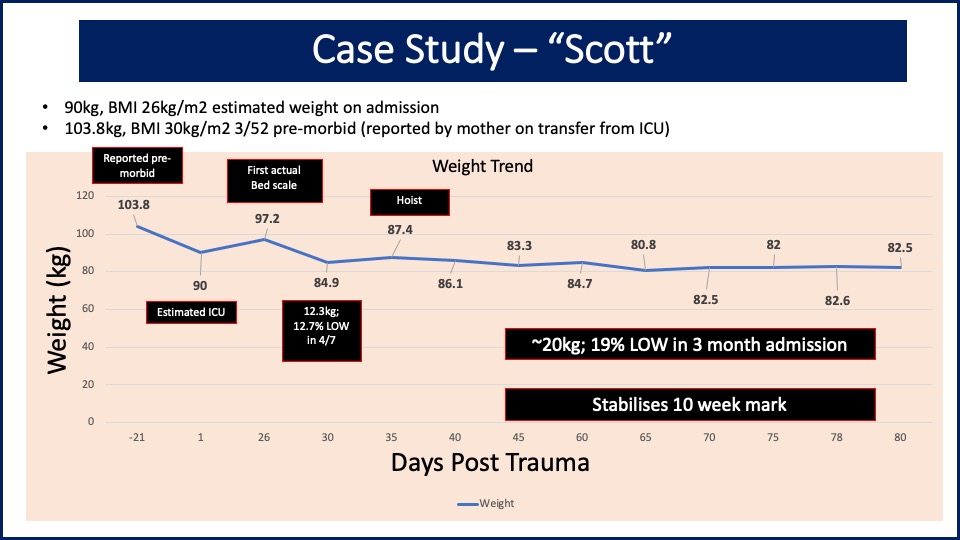Nutrition in physical trauma. Presented by Miranda Stuart, APD
The nutritional management of people who have sustained physical trauma varies not only from person to person, but also within the same person at each particular stage of recovery. Miranda explains how to use our clinical assessment and judgement in managing these clients. She uses patient examples to illustrate key nutritional management points.
- Metabolic alterations in injury. This involves two phases:
a) The ebb phase (characterised by reduced cardiac output, oxygen consumption, blood pressure, tissue perfusion, body temperature, metabolic rate)
b) The flow phase (characterised by increased body temperature, oxygen consumption, stress hormones, blood glucose levels, gluconeogenesis, proteinolysis, lipolysis, immunosuppression - The challenges of estimating nutrient requirements. Equations are a starting point. Using data from a patient with traumatic brain injury, Miranda describes how the energy requirement she estimated resulted in a 1.6MJ/day energy deficit and how she was able to correct this.
- Accurate anthropometry assessment can be difficult if the patient is unable to be weighed or has braces or fixtures attached. Miranda steps us through ways to best assess anthropometry using the tools we have available.
- Biochemistry assessment, including urea and electrolytes, CRP, Albumin, LFT’s, and the micronutrients zinc, copper, selenium, Vitamin A,D,K,E, iron and B12
- Modes of feeding- oral, enteral, parenteral or a combination. Decisions need to be made regarding the safest and most practical mode of feeding in an attempt to meet nutrient requirements.


Miranda Stuart, APD works in the Trauma and Orthopaedic Surgery units at The Alfred Hospital in Melbourne. Miranda has developed a special interest in the nutritional management of multi-trauma and traumatic brain injury patients and is largely focused on ward patients post transfer from the intensive care unit. With experience in both the critical care and rehabilitation settings, Miranda has a holistic view and understanding of the patient’s journey and is currently involved in a project focusing on early patient recovery as part of a partnership between The Alfred Hospital and Victoria’s Transport Accident Commission.
To register for the presentation and associated documents including the assessment quiz click here